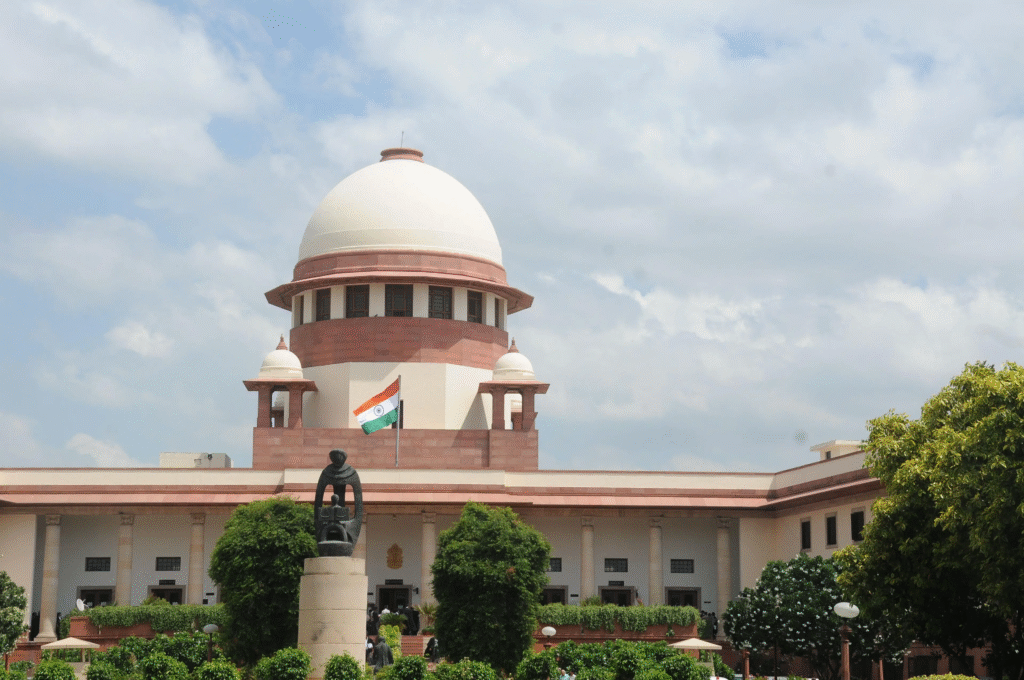Supreme Court Hearing on Ban of Illegal Betting Apps in India
Recent Development Sparks Court Action
On May 23, 2025, the Supreme Court of India agreed to hear a Public Interest Litigation (PIL) seeking a complete ban on illegal betting apps.
The court issued a notice to the Central government, asking for its response on regulating both online and offline betting platforms.

The plea claims these apps promote gambling, which is banned in many Indian states. This move comes amid growing concerns over the harmful effects of unregulated betting on young people and vulnerable citizens. The case, heard by Justices Surya Kant and N. Kotiswar Singh, highlights the urgent need to address the rise of such apps.
Background of the Issue
Betting and gambling have long been contentious in India. The Public Gambling Act of 1867 prohibits gambling in many states, but it does not explicitly cover online platforms. This legal gap has allowed betting apps to thrive, often marketed as “fantasy sports” or “skill-based gaming.” These apps attract millions, especially young users, by offering easy money through betting on sports or games. However, many operate without proper licenses, raising concerns about fraud, addiction, and financial losses. In Telangana, for instance, 978 suicides were linked to betting-related distress in the past year. The government has already blocked 108 illegal betting websites and issued notices to 133 platforms, but unregulated apps continue to bypass restrictions using internet backdoors.
Who Filed the Plea?
The PIL was filed by Dr. K.A. Paul, a prominent social activist and evangelist who leads the Global Peace Initiative. Paul describes himself as a globally recognized Peace Ambassador, nominated for the Nobel Peace Prize for his humanitarian work.
He argues that betting apps, disguised as skill-based games, exploit vulnerable people and harm society. The plea also calls for action against celebrities, including top cricketers and actors, who endorse these platforms. Paul’s petition emphasizes protecting India’s youth and preserving the nation’s moral and democratic values. He claims these apps lead to financial ruin and psychological distress, urging the court to act in the public’s interest.
Are Betting Apps Legal in India?
The legality of betting apps in India is complex. The Public Gambling Act of 1867 bans gambling in many states, but it does not address online betting clearly.
Some apps operate legally by claiming to offer “games of skill,” like rummy, which the Supreme Court has distinguished from gambling in past rulings. For example, a Karnataka High Court decision in 2020 ruled that certain online games are skill-based and not subject to GST. However, recent amendments in October 2023 classify all “online money gaming” as betting, subjecting them to a 28% GST. The Centre argues that any betting, whether skill-based or chance-based, is gambling under GST laws. In Telangana, betting apps have been banned since 2017, yet illegal platforms persist, often run by foreign entities like Chinese fraudsters.
What Happens Next?
The Supreme Court’s decision to hear the plea is a significant step. The court has asked the Centre to respond, signaling a thorough review of the issue.
The case is likely to explore whether betting apps can be uniformly regulated or banned across India. The outcome could set a precedent for the online gaming industry, especially on the distinction between skill and chance-based games.
Hearings will continue, with the court possibly addressing related cases, like the challenge to the 28% GST on gaming platforms. Meanwhile, enforcement agencies are cracking down, with actions like geo-fencing and public awareness campaigns.


 Trump’s $21M USAID Claim for India Elections Never Existed
Trump’s $21M USAID Claim for India Elections Never Existed  Did India Strike Pakistan’s Nuclear Hub Kirana Hills?
Did India Strike Pakistan’s Nuclear Hub Kirana Hills?  What’s Happening in Iran: India Urges Citizens to Exit
What’s Happening in Iran: India Urges Citizens to Exit  Why Did Bangladesh Choose Mangoes for PM Modi?
Why Did Bangladesh Choose Mangoes for PM Modi?  Principal Arrested for ‘Period Check’ in Thane School
Principal Arrested for ‘Period Check’ in Thane School  How an Indian Air Force Jaguar Crashed in Rajasthan’s Churu
How an Indian Air Force Jaguar Crashed in Rajasthan’s Churu